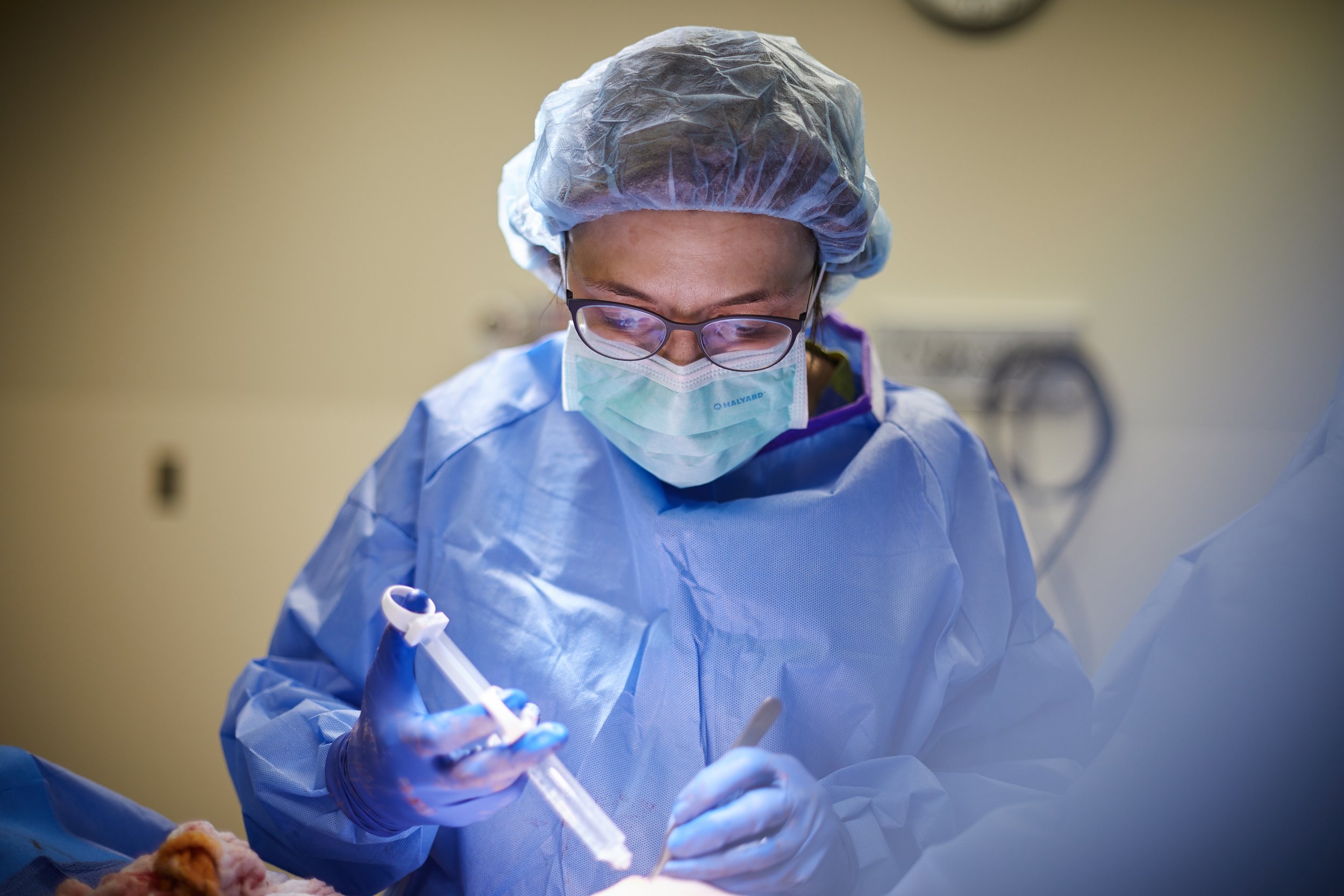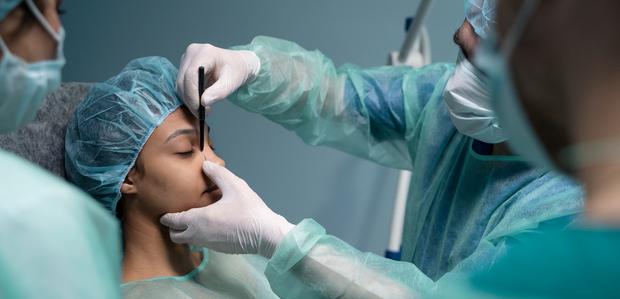Exploring the Emotional and Social Aspects That Drive Individuals to Think About Aesthetic Surgical Treatment as a Way of Enhancement
The decision to go after cosmetic surgery frequently expands beyond plain aesthetics, linking with psychological and social characteristics that warrant detailed evaluation. Variables such as self-confidence, prevalent societal appeal requirements, and the pervasive influence of social media converge to shape individual inspirations for medical enhancement.
The Function of Self-confidence
Self-worth considerably influences a person's choice to go after cosmetic surgical procedure. People with low self-confidence usually regard themselves in a negative light, leading to feelings of insufficiency concerning their physical appearance.

Inevitably, the duty of self-worth in the decision-making procedure pertaining to plastic surgery highlights the intricate interaction between body image, individual satisfaction, and psychological wellness. Recognizing this connection is important for healthcare professionals to make certain that clients are making notified decisions rooted in sensible expectations and emotional well-being.
Social Appeal Requirements
Influenced by pervasive media representations and social narratives, social appeal requirements play a crucial role in forming individuals' assumptions of their own bodies. These standards are often identified by an idealized form of elegance that highlights characteristics such as proportion, youthfulness, and slimness. As these ideals are bolstered with various networks, consisting of movie, advertising, and tv, individuals often internalize these messages, leading to discontentment with their all-natural appearance.
The effects of these societal norms expand past visual preferences; they can impact self-worth, mental health and wellness, and interpersonal partnerships. Individuals who view themselves as disappointing these criteria might experience sensations of inadequacy, motivating a wish for cosmetic surgical procedure as a method of accomplishing societal approval. This quest is often sustained by the idea that adapting these suitables will certainly enhance not only physical look however additionally social standing and personal fulfillment.

Influence of Social Media Site
The impact of social charm requirements is more amplified by the increase of social networks platforms, where curated pictures and idealized depictions of appeal are common. Users are frequently revealed to filteringed system and edited photos, which usually portray unattainable physical characteristics. This exposure grows a society of contrast, leading people to assess their own look versus these often unrealistic standards.
Social network influencers and stars often advertise aesthetic procedures, normalizing the notion that surgical enhancements are a practical means for attaining social perfects (plastic surgery rancho cucamonga). The visibility of these improvements can develop an assumption that undergoing plastic surgery is a common method, thus influencing individuals to think about similar interventions as a path to boosted self-esteem and social approval
In addition, the interactive nature of social media sites permits instant feedback via sort and comments, further reinforcing the desire to adapt popular appeal requirements. Such communications can aggravate sensations of insufficiency and drive individuals towards cosmetic surgical procedure as a way of getting validation. Inevitably, social media sites plays a critical duty fit assumptions of appeal, which dramatically affects the decision-making procedures bordering cosmetic surgical procedure.

Social Perspectives on Look
Throughout different cultures, perceptions of look are deeply rooted in historical, social, and financial contexts, forming individuals' views on beauty and desirability. In numerous cultures, look acts as a considerable pen of identification, influencing social standing, specialist chances, and personal relationships. As an example, in some societies, light skin is usually connected with riches and benefit, while others might idealize darker complexion as icons of strength and credibility.
In addition, standard beauty standards are usually perpetuated via cultural stories, media representations, and family influences, leading to differing ideals throughout different areas (plastic surgery rancho cucamonga). In Western cultures, the focus on youth and fitness usually drives individuals toward aesthetic enhancement, while in particular Eastern societies, even more subtle modifications lined up with traditional visual appeals might be chosen
Globalization and the expansion of electronic media have even more complicated these dynamics, creating a hybridization of appeal suitables that transcends geographical borders. As individuals progressively browse these cultural stories, the pressure to adapt particular look standards can cause the wish for plastic surgery, mirroring a complex interplay of social values and personal ambitions. Recognizing these cultural point of views is important in resolving the inspirations behind plastic surgery factors to consider.
Psychological Effects of Plastic Surgery
Several people looking for plastic surgery record experiencing extensive emotional influences that can significantly modify their self-perception and psychological health - plastic surgery rancho cucamonga. The need for physical improvement often stems from underlying concerns such as low self-esteem, body dysmorphic disorder, or societal stress pertaining to charm standards. For some, the instant post-operative stage can result in a short-term increase in self-confidence and contentment with their appearance, promoting a feeling of empowerment
However, these favorable feelings might not be withstanding. Research study indicates that while some people experience boosted self-confidence, others might deal with heightened anxiety or anxiety if their assumptions are not satisfied. This discrepancy can emerge from unrealistic ideals bolstered by media representation and social narratives bordering appeal.
Additionally, the emotional ramifications of plastic surgery expand past the person. Relationships with friends and family might be stressed as social characteristics shift, leading to sensations of isolation or alienation. Inevitably, the mental influences of plastic surgery are intricate and diverse, requiring cautious factor to consider by both prospective individuals and healthcare service providers to ensure educated decision-making and practical expectations.
Final Thought
To conclude, the choice to seek plastic surgery is dramatically influenced by a combination of self-worth issues, societal appeal criteria, and social perspectives go on appearance. The pervasive reach of my link social media sites better intensifies these pressures, advertising unrealistic suitables that people often strive to obtain. Recognizing these mental and social aspects is essential for addressing the motivations behind cosmetic surgical treatment, highlighting the demand for a more nuanced discussion bordering beauty and self-acceptance in contemporary society.
The decision to go after cosmetic surgical treatment commonly prolongs past plain looks, linking with social and mental dynamics that merit complete assessment. Eventually, social media plays a crucial duty in shaping assumptions of beauty, which substantially affects the decision-making processes surrounding cosmetic surgery.
As individuals progressively navigate these cultural stories, the stress to adhere to certain look criteria can lead to the desire for cosmetic surgical treatment, mirroring a complicated interplay of social values and personal desires.In verdict, the decision to seek cosmetic surgery is significantly affected by a combination of self-esteem concerns, societal elegance criteria, and cultural viewpoints on appearance. Understanding these social and psychological factors is essential for resolving the motivations behind cosmetic surgery, highlighting the demand for a more nuanced discussion surrounding elegance More Info and self-acceptance in contemporary culture.